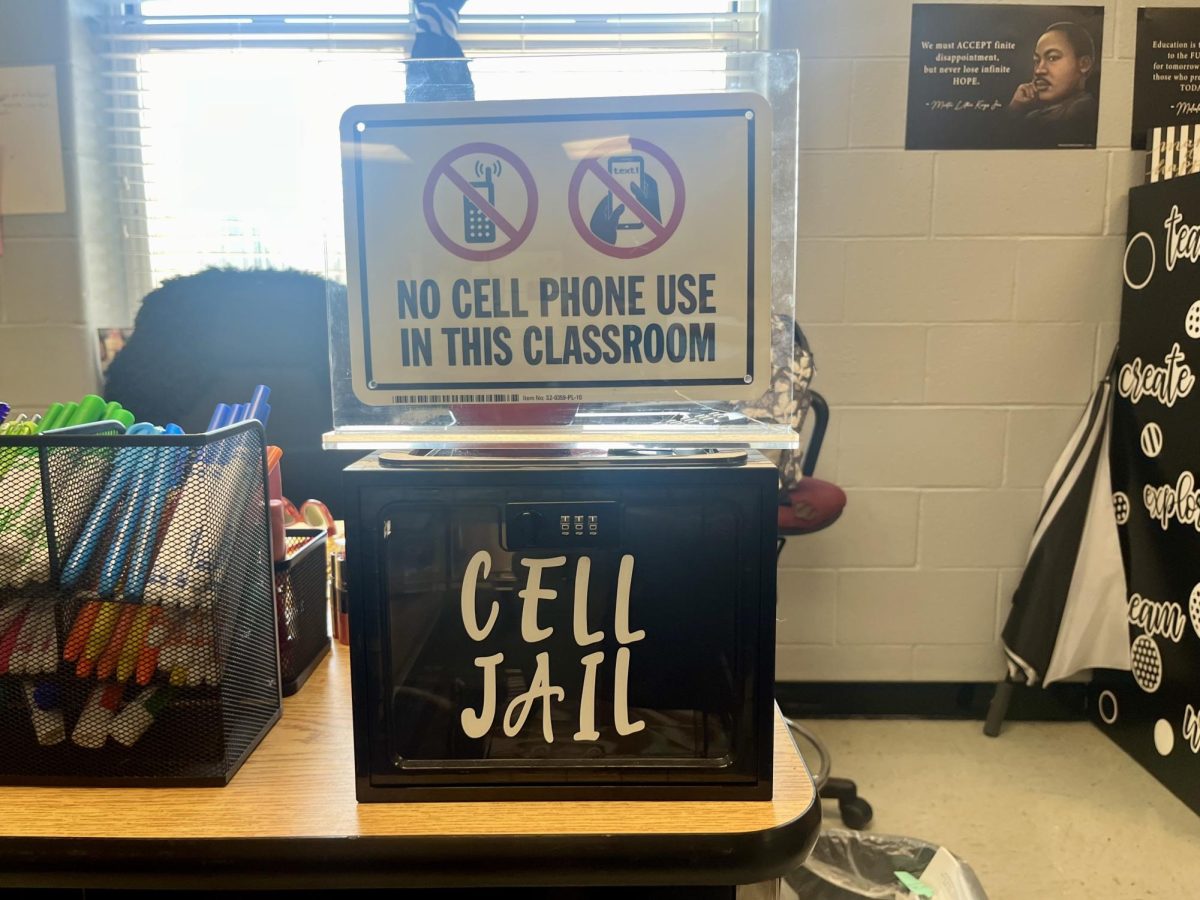Recently, schools around the U.S. have started to place more cellphone bans for things not pertaining to academics. Since 2020, The Hill claims that “government data found almost 80% of schools banned cell phones for nonacademic purposes, but enforcement varies widely around the nation.” The question is, why are they doing this?
According to NEA Today, they voice that “Schools that have instituted more expansive restrictions (including outside the classroom) believe a cell phone-free environment will lead to fewer incidents of cyberbullying, improve attendance, and reduce time on social media (and associated mental health problems). The most often-cited reason is to improve engagement in class.”
So, the benefits that come with banning cell phones aren’t concealed, but what about the negatives?
In Massachusetts, a high school planned to use phone pouches provided by the company, Yondr, to limit the use of cellphones in school.
In the coming years, the pouches that have been used in concerts for privacy have been adapted into schools. 41 states around the U.S. have had at least one school participating in locking up phones with pouches, and since 2014, Yondr has seen an increase in phone pouches being used in schools.
With this, students and parents have expressed their concerns saying that this is a huge breach of the students’ safety.
In the Newsweek article, “Outcry over Massachusetts high school’s cell phone lock policy” Alice Gibbs describes how students formed a petition to stop this new policy, and with this, parents have also expressed their concerns saying that this is a huge breach of the students’ safety.
In that same article, parents claim that some students need their phones to check their blood sugar for their diabetes. Students have also spoken up saying that phones are a way for students to contact their families if they have a problem in school. Chris, a student who petitioned against the pouches, notes that there is an increasing number of school shootings in America and expresses that kids could call their parents if they’re in danger.
There have been more protests other than the one at the high school in Massachusetts. James Madison High School in Houston, TX, also instituted a cell phone ban to prevent numerous fights that have happened on their campus that they think are linked to phones.
As talked about in Khaleda Rahman’s article “High school students walk out over cell phone ban” for Newsweek, students must hand over their phones when they arrive at school and don’t get it back until the end of the day. The students can’t even use their phones during a break or at lunch.
Even at Madison High, parents still express their concerns. They say that they need to be in contact with their children in case of an emergency. A parent, Anthony McDonald, stated “I bought my kid’s phone because my daughter has asthma, and I said if something goes wrong, I don’t want five different teachers calling me saying something happened to my daughter. She needs to call me.”
This past week, students at Madison High School have started to protest this new rule. In a letter the students wrote to the school officials, the students expressed that they feel like they are prisoners. They also stated that they are escorted to lunch in a straight line with police offers, and even claim that students are being searched.
In continuation of the letter, the students communicate “We are students. We have done nothing wrong. We have protested, spoken up, and retaliated against oppressive policies. This does not justify any of the actions that the school and district have taken to silence, control, and punish us.”
While not an issue currently, students around Desoto County wonder if their schools will be next to ban cellphones in school buildings.


